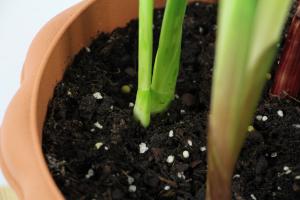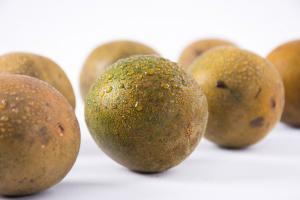Introduction
Water is essential for plant life, and it is vital that plants receive enough water to thrive. However, not all water is suitable for plant growth. Some water sources may contain contaminants or impurities which can harm or even kill plants. This article will examine the question of whether water needs to be treated for just plants, as well as the different options available for treating water.
Contaminants in Water
Water can contain a range of contaminants that can be harmful to plants. Some of the most common include heavy metals, pesticides, herbicides, and chlorine. Heavy metals can accumulate in the soil over time, leading to toxic levels that can harm plant growth. Pesticides and herbicides can also damage plant cells and reduce the overall health of plants. Chlorine is commonly found in tap water, and it can kill off good bacteria in the soil, making it harder for plants to absorb nutrients.
Benefits of Treating Water
Treating water can help to remove impurities and contaminants that can harm plants. Some of the benefits of treating water include improving the health and growth of plants, reducing the risk of disease, and increasing the lifespan of plants. Treating water can also improve the taste and quality of fruits and vegetables grown from treated water, making them more appealing to consumers.
Options for Treating Water
There are several different methods available for treating water for just plants. One of the most common methods is using a water filter, such as a carbon filter, which can remove contaminants like chlorine, heavy metals, and sediment from the water. Another option is using reverse osmosis, which can remove a wide range of impurities, including dissolved solids and bacteria. Chlorine can also be removed from water using ascorbic acid, which is a natural form of Vitamin C.
Considerations for Treating Water
When considering treating water for just plants, there are several factors to think about. Firstly, the quality of the water source will determine the type of treatment required. For example, tap water may require a carbon filter, while water from a well may require reverse osmosis. Secondly, the type of plant being grown will also influence the type of treatment required. Some plants may be more sensitive to certain contaminants than others, and it is important to consider this when choosing a treatment method.
Conclusion
In conclusion, treating water for plants can have many benefits and can help to ensure the health and longevity of plants. While the type of treatment required will depend on the quality of the water source and the type of plant being grown, options such as water filters, reverse osmosis, and ascorbic acid can all help to remove harmful impurities and contaminants. By treating water appropriately, plants can receive the necessary nutrients and moisture to thrive and produce high-quality fruits and vegetables.

 how many times do yo...
how many times do yo... how many planted tre...
how many planted tre... how many pine trees ...
how many pine trees ... how many pecan trees...
how many pecan trees... how many plants comp...
how many plants comp... how many plants can ...
how many plants can ... how many plants and ...
how many plants and ... how many pepper plan...
how many pepper plan...






























